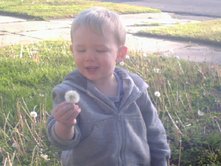
I recently read an interesting book "Telling God's Story: Narrative Preaching for Christian Formation" by John W. Wright (Published by InterVarsity Press, 2007).
When I picked up this text in a Pasadena store, I was interested in reading this book over the hundreds of others in the "Archives" for several reasons. First, the author was my friend's mentor and having personal connections to the author often helps you pick up a book and start reading. Why else would any of us care that Stephanie Meyer was an English major? We like to connect to our authors.
Second, I wanted to read this book because I love the language about participating in God's story to redeem creation. This is the lens by which I read scripture and thus preach every sermon; to call people to participation in God's plan to restore and redeem creation.
And although these were the reasons I picked up the book, I gleaned so much more from these pages.
The book begins with commentary on today's church and my own heart lamented its truth. All too often congregations cry out "feed me," "feed me," much like baby birds. The picture you see here, at the beginning of this blog, was taken by my friend Cassie Tillas.
And much like my idea of tiny baby birds, Wright says often the church "gathers to enable individuals to find God's help for various personal problems" and "feed them as individuals" (10).
Although anyone could have written a book with those facts, Wright takes it much futher. He delves deep into why this is a problem; what it is that causes the Church of Jesus Christ to think this way. Wright talks about the infleunce of an individualistic, consumer oriented culture, the theraputic experience, and traces the theological figures who enabled us to get to this baby bird mentality.
He also sets up a difference between comedy and tragedy. All too often we preach using comedy. The end is resolved; no matter what drama happens, we end up in a happy, beautiful place.
However, tragedy "shatters the presupposition that it will all work out" (33) and he describes how such vulnerability opens doors for transformation. For it is those tragic moments that pave the way to enable repentance when we are called out of our society, our individual lives, and asked to participate in the very story of God.
Wright talks about how preaching with a tragic moment sends "shock waves" (43) through the church and people may revolt crying out "feed me" even louder; for they desire to be nourished and leave feeling good. But the task of a preacher is to call them out of this mentality and set them up for an exciting adventure where they become "characters participating in God's redemption of the world through Christ and the church" (159).
Shock waves create conflict. Conflict creates tension. Tension creates stress for the preacher; and unfortunately some of us do not make it past those tragic moments to watch our people flourish and become who they were created to be. And thus, those of you who know me well, can understand how reading this book was extremly redemptive for me.
The hardest part of this text to read were the parts I took my pen and wrote "sad" in the margin. These were the sentences: In today's interpretation of scripture "each individual became the story's central actor," "God may play a supporting role" in each story but only "based upon the will of the individual," thus making THE STORY, the story of "personal salvation" (53). Truly sad.
How different is this individualistic, baby bird mentality from the vision to enter into the story of God; to particpating in the redemption and salvation of all creation? I am not even sure that can be answered adequately. It is as different as you can imagine... speaking of tragedy; that ought to make you puke.
Perhaps this breaks my heart most of all because I know he is right; this is what dominates preaching these days. And thus: How will the people in the church today learn to jump out of the nest to soar as an icon (reflecting the divine image) for the world if we preach messages aimed at feeding and nourishing the individual?
When we preach to nourish the individual and "feed them" only our witness to the world becomes static. But what we are called to, as Wright says multiple times, is to live as a "peculiar people;" a people on "an adventure" to live as a sign of God's redemption in the world" (74).
Now that's exciting!
Thus, the goal of our preaching should be to preach the "teleos" of creation's redemption. Wright spends a significant amount of time teaching us HOW to do that. And if I've convinced you this book is worthwhile, I would highly recommend picking up this book and learning how to preach and interpret scripture in this beautiful story of God.
Thankfully, Wright does not end with just words in preaching. He talks about the actions that go along with the rhetoric. Wright tells us there are three things we must do (in chapter 5). We must take part in the Eucharist, forgive and reconcile, and sharing and hospitality. He says, "the practices of a local congregation provide the rhetoric background through which the Spirit might form and sustain a peculiar people" (128).
Wright uses the language of "formation" and habits (91) but having the passion for virtue ethics that I do, I could expand on these two phrases forever.
I smiled when he talked about the preacher being formed by the virtues of faith, hope, and love. For the virtue ethicist knows these are the three theological virtues, according to St. Thomas Aquinas.
Virtue ethics teaches us to be formed by faith, hope, and love and it is my passion to become creative and imaginative about how we might be formed this way.
We were formed incorrectly; many pastors know this; Wright put it in print for us to convince us of this. However, Wright is right. :) We need to think through what it means to be re-formed into a new narrative; a new way of thinking.
What will it take to shock us out of our habit of acting like baby birds, begging the preacher to feed us so we feel good?
I have several ideas, expanding on Wright's third point (sharing and hospitality); all of which include "getting dirty."
We spend time with the "least of these." We hang out with people in our community, inviting them and loving them as our community (even if they are the "stranger" as Wright calls it). We get down on our knees and scrub the floors. We allow our pastors to spend more time with the poor than the rich. We act like the people outside our church doors are as valuable as those with power. When people lose their hope and dreams, we remind them of who they CAN be; who they were created to be. We treat them like the people God envisions for them to be.
I would add, to Wright's great start in this discussion, that I believe... the way we learn how to "get dirty" is through the practices of the church (as I write over and over). For example, when we give something up for Lent, we learn a new habit. We are re-formed into a different kind of people. We learn how to give up something for God and thus when it comes time to give up our time or money for someone else, we were formed to do so. In other words, we are being formed differently through the action of self-denial. When we fast, we learn a new habit. We are shocked out of our old habit and learn a new one.
Perhaps what the church needs today, is a huge fast where we together give up what we want to learn where our little lives get caught up in God's plan for redemption of creation; where we are shocked to the point of being formed differently; that we might become a different people together.
And if my commentary and additions do not convince you to read this book, maybe Stanley Hauerwas can. He recommends it. :)









